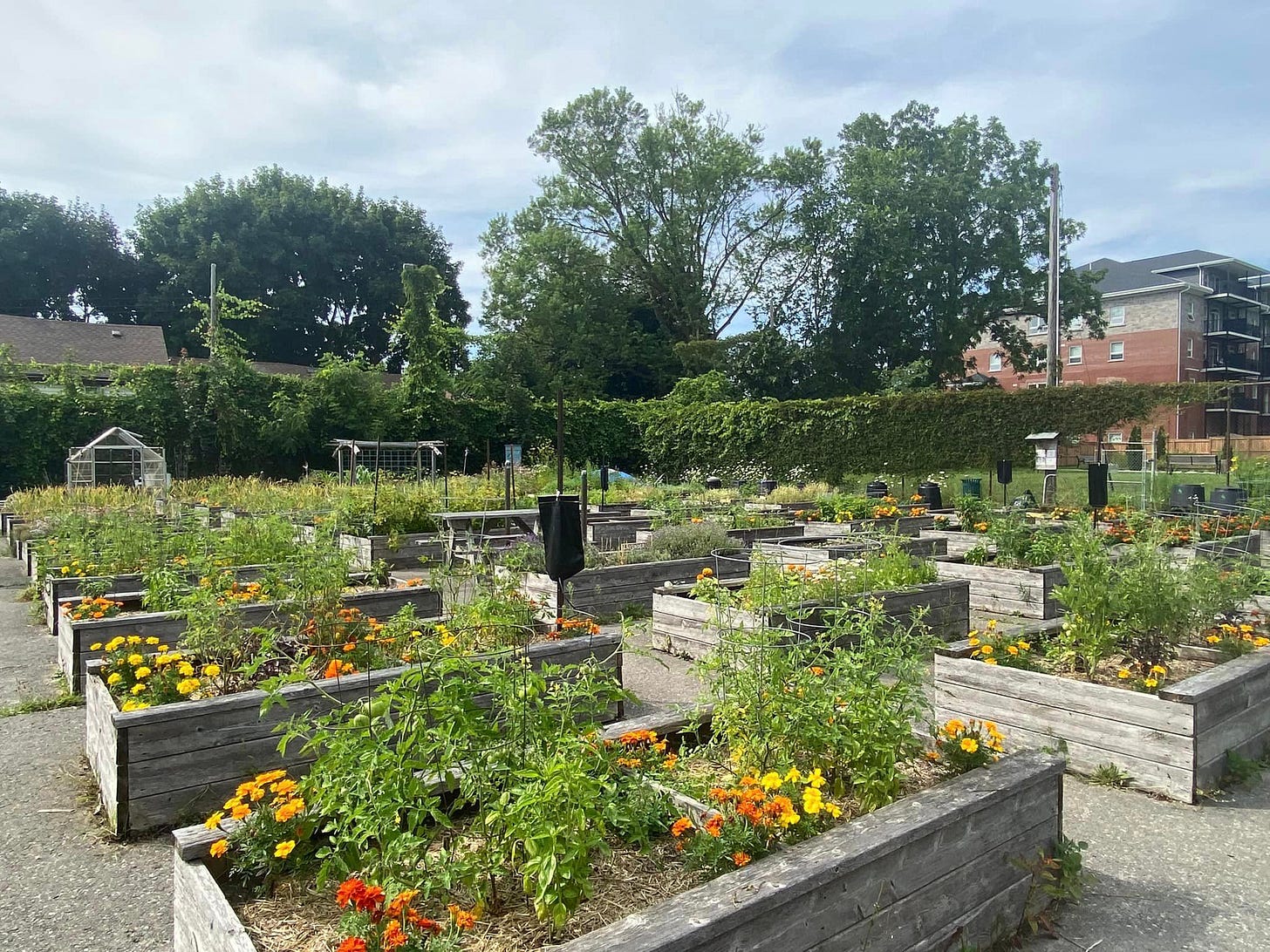Growing Closer Through Gardening
Plants and gardens can significantly contribute to so many's lives by bringing people together in a common interest.
COMMUNITY CONTRIBUTOR
Plants don’t talk or even move around much, so you might not think they would be much use to help build a community. But I think that you might be surprised.
I entered the term “garden club” in my search engine and retrieved over 100 million hits in 0.34 seconds. As it turns out, gardeners are a rather social group.
When I first moved to Owen Sound and didn’t have a local social network, the first people I met were gardeners. My new neighbors started to turn up to chat while I was busily digging new garden beds.
Throughout the pandemic, the Grey County Master Gardeners, who quickly embraced technology to take their monthly meetings online, were my only contacts outside of work. They remain good friends and people I spend a lot of time with.
My co-workers who share the gardening bug leave me beautiful garden magazines on my desk several times a week, and we trade plant cuttings to fill our tiny office windows with houseplants propagated from our collections at home.
My sister lives in Brampton. Like many urban centers, she has a backyard roughly the size of a postage stamp, and people can live there for years without ever speaking to their neighbors. She started planting vegetables in raised beds, and soon the neighbors were peeking over the fence to see what was growing. People began to ask about gardening, and soon, half the neighborhood was growing vegetables and sharing with each other. They were trading zucchini and tomatoes and recipes.
A whole neighborhood of people of diverse backgrounds – some of whom didn’t even share the same language - had been brought together through vegetable gardening.
Social isolation is increasingly being recognized as a public health issue, with the World Health Organization identifying that loneliness affects up to 25% of seniors. Being lonely is not just a quality of life indicator. Humans who lack these vital connections have shorter lifespans by as much as 15 years. In this respect, plants and gardens can significantly contribute to so many's lives by bringing people together in a common interest.
These connections can be fostered through community gardens, garden clubs and groups, and horticultural therapy in long-term care and mental health facilities. As my sister and I learned, informal connections can also develop spontaneously, all because of a few tomatoes or a freshly dug flower bed.
I live across the street from a long-term care facility, and some of the residents are mobile enough for short walks in the neighborhood. One of them complimented my garden, and we chatted for a minute before she carried on.
By the time she completed her next lap of the block, I had snipped a few peonies for her and placed them on the seat of her walker. Her face lit up with a big smile, and I sincerely hope that little gesture made her day brighter because it certainly did for mine.
Thank you to sponsors of The Owen Sound Current Writers’ Fund, who make these community contributions possible. Contributions from the community do not necessarily reflect the opinions or beliefs of The Owen Sound Current and its editor or publisher.




